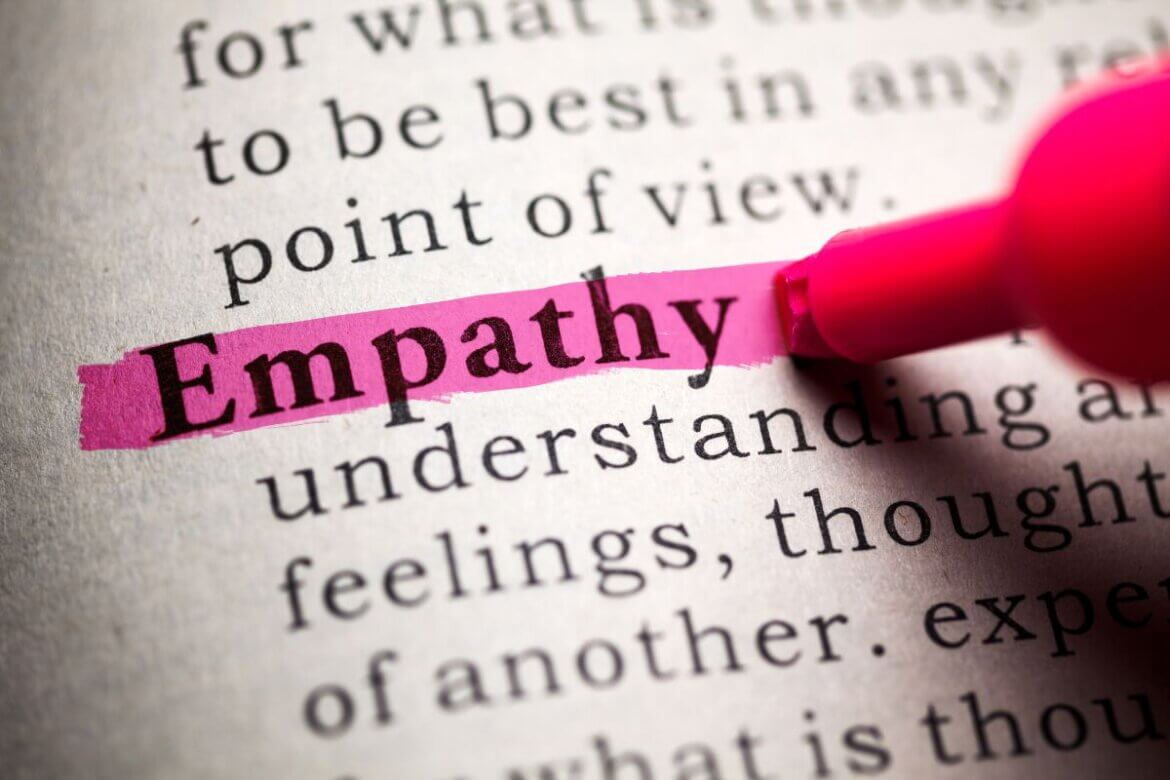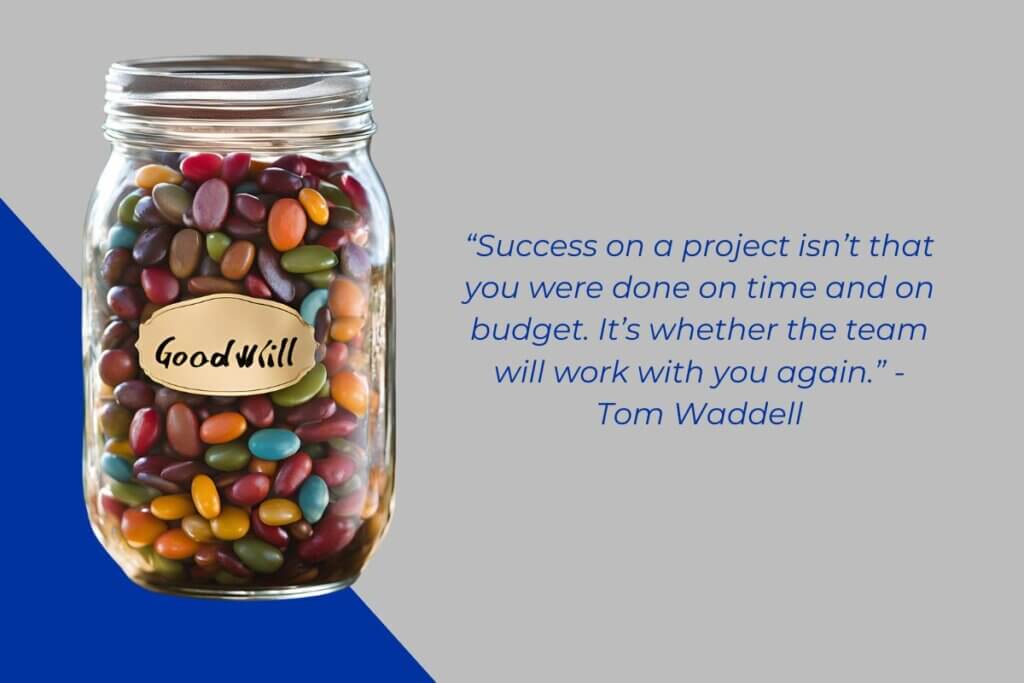
Recently, I listened to a podcast on the Huberman Lab featuring Dr. Marc Brackett, a world-renowned expert on emotions and emotional intelligence. One of the key discussions in the podcast was about the impact of empathy and emotional intelligence on learning, conflict resolution, and decision-making. As a CEO and project manager, it got me thinking about how crucial these skills are—and the undeniable importance of empathy in project management and effective leadership in the medical device industry.
On leadership and empathy in project management
True leadership is not just about making decisions or managing timelines—it’s about genuinely understanding where your team is at and what they need to succeed. It’s about understanding their emotional states, needs, and perspectives.
Empathy enables you to be more proactive. It allows you to drive decisions that benefit the individual, team, and project. Rather than waiting for conflicts to arise or performance to suffer, you can address issues early on by simply understanding the emotional landscape of your team. You don’t have to necessarily react to every emotion, but knowing when someone is upset or overwhelmed allows you to intervene in a way that keeps the project on track while maintaining team morale.
“True leadership requires being able to empathize with the people who are following you. You don’t even have to react to what you’re receiving, but you do need to understand it.”-Tom Waddell
Filling the Goodwill Jar
One way to think about leadership is by imagining a “goodwill jar.” With every positive interaction with your team and every time you show empathy, you’re adding to that jar. It’s the little things that fill it up—listening when someone is having a rough day, showing flexibility when life throws curveballs at them, or simply acknowledging their efforts. You work with them to ensure they can perform their best without sacrificing their health and personal life.
Imagine you’re working with a new mom who’s crucial to getting the project done, but she’s dealing with a sick child. As a leader, do you push for the same 9-to-5 hours or offer a more flexible schedule? Maybe she works from noon to 2, takes a break, and then jumps back in from 3 to 5 or even 7 to 9. You listen, you adapt, and you figure out what works best for her and the rest of the team.
Throughout a medical device project, there will be times when you need to ask the team to go above and beyond—whether it’s working extended hours to meet critical milestones or taking on additional responsibilities to ensure regulatory compliance. If you’ve built up enough goodwill by supporting your team when they need it most, they’re more likely to reciprocate when the situation calls for it.
On the other hand, if you are seen as unsupportive or indifferent to your team’s needs, any goodwill quickly dries up, leading to disengagement and resentment.

Think about it like this: the success of a project isn’t just about hitting milestones or delivering on time. It’s about whether your team would want to work with you again. Have you built enough goodwill with your team that they trust and respect you, even after a tough project? If the answer is yes, you’re doing something right.
Balancing one person’s needs against the needs of the group.
This level of empathy isn’t always easy, though. Not everyone on your team may be thrilled about accommodating another person’s needs. Some may even feel resentment. So what do you do? You pull those people aside, listen to their concerns, and explain why the team is structured this way for now. Explain the bigger picture. Communicate to ensure the collective needs of the group are met while still honoring the individual needs of each team member.
As a leader, it’s essential to watch how people are doing throughout the project. You can’t wait until someone is burnt out or disengaged to step in. You put in the effort daily to make sure the project is something that works for everybody involved. It’s about putting yourself in the shoes of every single person on your team, whether they’re your closest collaborator or someone you rarely interact with.
But what if you have to lead a large medical device project involving hundreds of people?
You just need to remember empathy starts with you, but it doesn’t end there.
In larger medical device projects, where you may have hundreds of people involved, it’s impossible to empathize with everyone individually. This is where delegation and leading by example come into play.
By demonstrating empathy yourself, you can inspire your team leads to do the same. Hiring people who value empathy and emotional intelligence ensures that your team operates with mutual respect and understanding, even when you can’t be directly involved with every individual.
The role of Emotional Intelligence (EQ) in medical device project management
The “RULER” approach (mentioned by Dr. Mark in the podcast) to social and emotional learning emphasizes the importance of recognizing, understanding, labeling, expressing, and regulating emotions—both your own and those of your team members.
This emotional self-awareness is the first step toward effective empathy as a project manager. You need to understand where you stand emotionally before you can manage the emotions of others.
For example, if you’re biased against a team member—let’s say you find them challenging to work with—empathy requires that you set aside that bias and find a way to work with them constructively. Ignoring your feelings could lead to unfair treatment, which may negatively impact the team and project.
“Empathy starts with listening—really listening—not just to the words but to what’s unsaid, to where people are mentally and emotionally.”-Tom Waddell
Building a positive team culture: empathy vs. manipulation
So where do we draw the line? When does empathy turn into manipulation? The answer is simple.
Genuine empathy is about supporting the team and ensuring their success, not using it for self-serving purposes by leveraging the knowledge of what makes someone tick against them.
An example of manipulation would be convincing a people-pleasing team member who is nearing burnout to work extra hours by framing it as a ‘team player’ move. Empathy, on the other hand, would be understanding their exhaustion, acknowledging their contributions, and finding a solution that supports their well-being while still keeping the project on track.
Empathy might not seem like the most direct path to success, but over time, it’s the one that will keep your team motivated, engaged, and willing to tackle the next big challenge alongside you. So start with goodwill, and end with goodwill—because that’s what turns a project manager into a true leader.
If you’re looking for an empathetic project manager to lead your medical device project to success, get in touch.
You can find the Huberman Lab podcast on ‘How to Increase Your Emotional Intelligence’ here.
